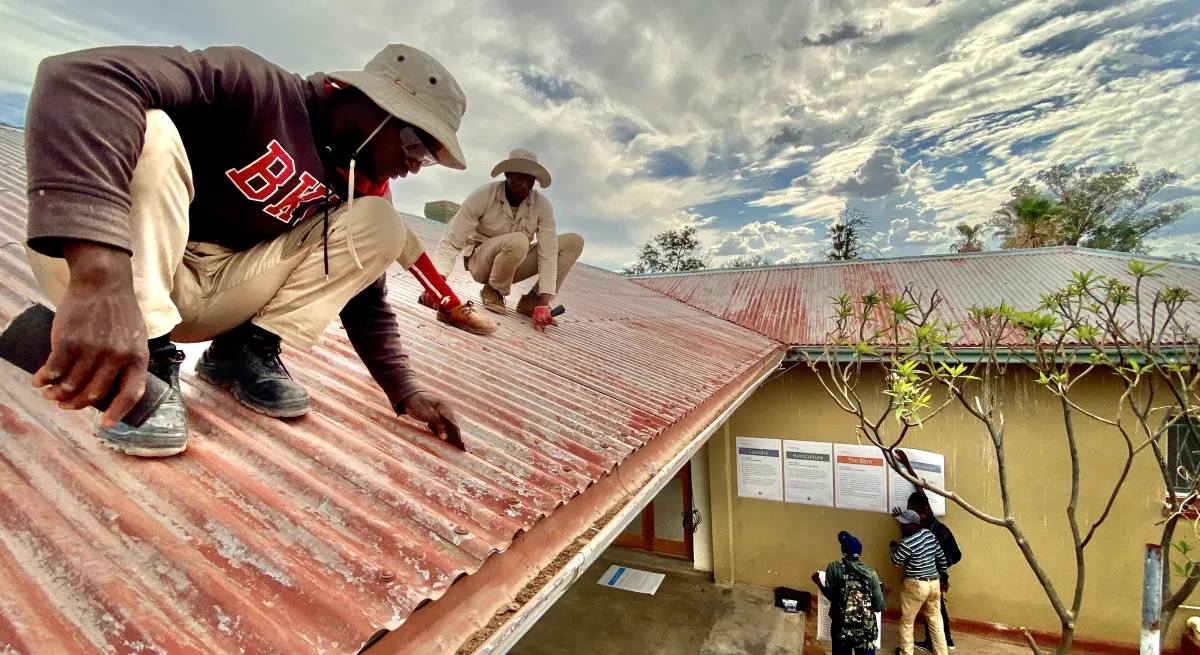Creating win–win local development that improves the wellbeing of Namibian communities and promotes inclusive conservation tourism to the Namib Desert.
-22.568454, 17.074881
Droughts and economic decline have taken a toll in rural Namibia. But opportunities remain that can be put to work for local communities – sustainable tourism shows particular promise.
Through its RuralRevive project funded by the Julius Baer Foundation, Wolwedans is working to revitalise the community in Maltahöhe, Namibia. The project seeks to capitalise on the village’s proximity to the world’s oldest desert and a UNESCO World Heritage Site that draws thousands of visitors a year. Project activities focus on turning Maltahöhe into a hub for sustainable tourism on the way from Windhoek, the capital, to the Namib Desert. It aims to employ and engage locals in new circular economy tourism infrastructure and services, including a large-scale laundry service with a water recycling plant feeding organic vegetable horticulture, a trading hub, delivery services, vocational training, a digitally networked distribution centre, and upcycling of waste. Among the project participants are marginalised women, smallholder farmers, youth and entrepreneurs in Maltahöhe and the surrounding Daweb Constituency.
Quick facts
Maltahöhe Village, Hardap Region, Namibia
• Project support: 2021-2025
• Grant amount: CHF 100,000 per year
• Training young people and marginalised groups in tourism and linking them with sustainability focused entrepreneurs and investors.
From rural marginalisation...
Lack of economic opportunities in rural Maltahöhe has caused its young people to leave in search of work far away from the desert community, causing a vicious cycle of lost potential and further economic shrinking.
... to sustainable transformation.
The sustainable tourism hub being co-created by Wolwedans promises to create jobs and opportunities for professional growth for young Namibians in this desert region. Its success holds potential for replication in multiple villages, helping to stabilise or reverse patterns of rural exodus.

RuralRevive is very organic and rooted in our community… I appreciate the fact that the project shifts away from ‘hand out’ approaches. I see an abundance of opportunities with respect to fresh produce production. Markets have been a big challenge, so RR provides a vehicle.
We are putting the pieces of the puzzle together and this is the start. On the tourism side, the transport solution will
provide the linkage to local produce and fill the gap. RR is the means to bring opportunities together.
OUTPUT
More than 150 communal and commercial farmers in Maltahöhe and surrounds will be trained to supply the growing local tourism sector and ensure village-level food security.
OUTCOME
Approximately 45 tourism establishments encompassing 1,500 beds, travelers and consumers stand to benefit from the market created by the project.
HIGHLIGHT
Construction and renovation of a solar-powered, water-recycling laundry station has already employed several young people and 40 new jobs were created.
Sowing economic seeds in the desert
• The Republic of Namibia is ranked second in the world when it comes to income inequality between rich and poor.
• Economic difficulties are especially evident in rural areas of Namibia, such as Maltahöhe district. The region has declined due to increasing droughts and the collapse of Karakul sheep farming, among other economic losses.
• This has resulted in rural exodus, poverty and substance abuse in local communities, as well as erosion of local knowledge and traditions.
• At the same time, however, tourism to the iconic Namib Desert nearby has grown considerably.
• The RuralRevive project aims to plant and nurture seeds of economic growth in Maltahöhe by catering to these new flows of desert visitors coming from Windhoek and beyond.
• Besides building new infrastructure for sustainable tourism, the project aims above all to invest in human capital by training locals in advanced commercial farming techniques, operation of visitor lodges, clean up and revaluation of waste and more.
